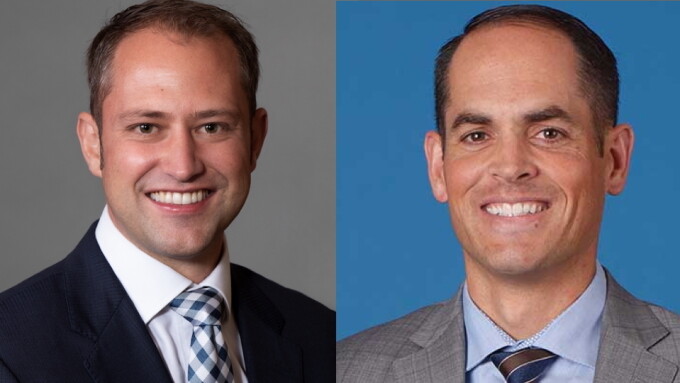SALT LAKE CITY — Republican state legislators in Utah have introduced two controversial age verification bills that could have nationwide ramifications.
Rep. Jordan Teuscher (R) and Sen. Michael McKell introduced HB 311 and SB 152, respectively.
SB 152 would require social media companies to verify the age of any Utah resident seeking to use or create an account on social media platforms. The rule would take effect Jan. 1, 2024.
Moreover, should a platform determine that a user is a minor — defined in both bills as anyone under 18 — SB 152 would then require social media companies “to give parents access to their kids’ accounts,” reports tech news site TechDirt’s Mike Masnick, who closely covers legal and free speech developments concerning the internet.
HB 311 goes a step further, not only requiring age verification but also forbidding anyone under 16 from having any social media accounts.
No Internet After Supper for Minors
Sen. McKell’s SB 152 would enable the parent or guardian of any minor to monitor “all posts the Utah minor account holder makes under the social media platform account” and “all responses and messages sent to or by the Utah minor account holder.”
Masnick called the proposed law’s requirement that websites hand over passwords “ridiculous,” noting that “no website should be able to access passwords themselves. They should be encrypted, meaning that even the website shouldn’t have access to the passwords in a form that they could give to parents.”
SB 152 also mandates that platforms prevent minors from accessing social media accounts between 10:30 p.m. and 6:30 a.m.
'Beyond Stupid'
“This is beyond stupid,” Masnick commented. “We already know how this works out, and it appears that no one in the Utah legislature bothered to do even the slightest amount of research. Most websites these days ban children under 13, to avoid having to deal with federal COPPA (Children’s Online Privacy Protection Act) regulations. And, because many of these services are still useful, even for kids, we’ve built a system where parents are teaching their kids to lie about their age.”
“Of course, the Utah politicians pushing this will say that such studies don’t matter, because with ‘age verification’ they won’t be able to lie,” Masnick ironized.
Free speech advocates of all political orientations are concerned about recent attempts by a few Utah politicians to censor the internet. Section 230 expert Jess Miers, of the progressive Progress Chamber think tank, and Shoshana Weissmann, digital director and fellow at free-market think tank R Street Institute, concurred with Masnick about the dangers of the Utah proposals.
HB 311, Miers tweeted, “will force websites to perform age verification on all of its users (yes, including you, even if you don't live in UT), and restricts teens from social media.”
“Because state-by-state implementation is technologically infeasible,” Miers added, “you should expect it will affect all users, of any age, from any location. Both bills (HB 311 and SB 152) currently have a strong likelihood of passing. This is not a drill.”
TechDirt’s Masnick concluded, “The evidence-free moral panic over social media keeps getting stupider, and when things get particularly stupid about the internet, you can pretty much rely on Utah politicians being there to proudly embrace the terrible ideas.”
Main Image: Utah State Rep. Jordan Teuscher (R) and Utah State Senator Michael McKell (R)








